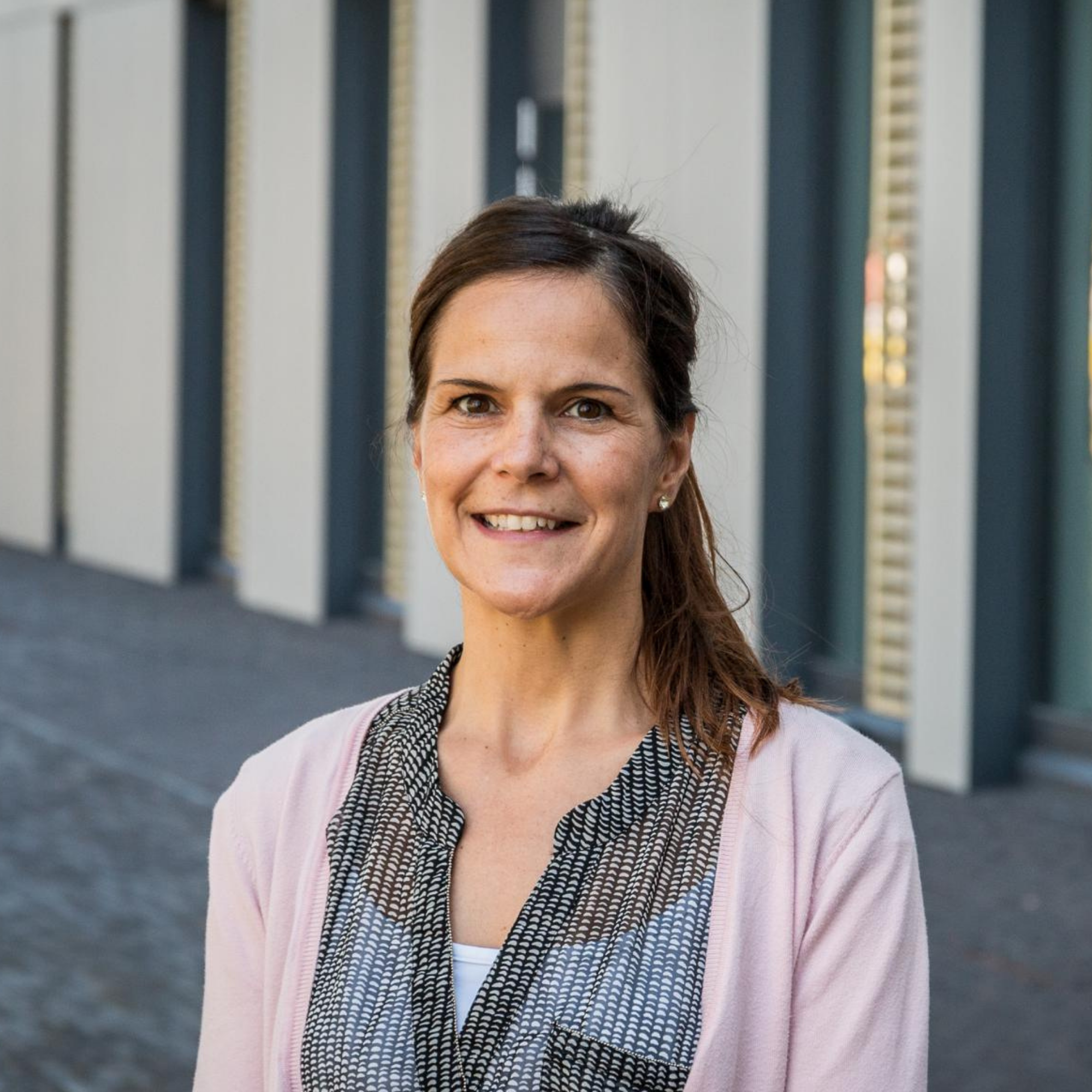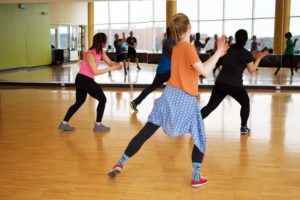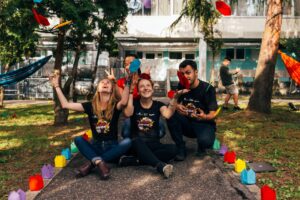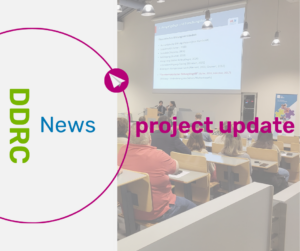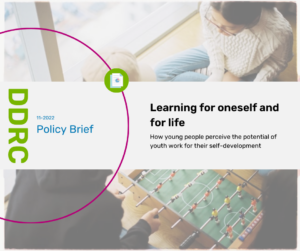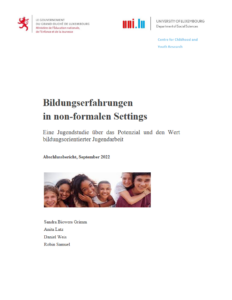Dr Sandra Biewers Grimm is a pedagogue with a Master’s degree in Social Management and a Postdoctoral Researcher at the Centre for Childhood and Youth Research (CCY) at the University of Luxembourg.
Educational experiences in non-formal settings
A youth study on the potential and value of education-oriented youth work
Which educational experiences do young people have when they participate in youth work activities or when they are active in youth work? This study takes a look at the potential of education-oriented youth work in Luxembourg.
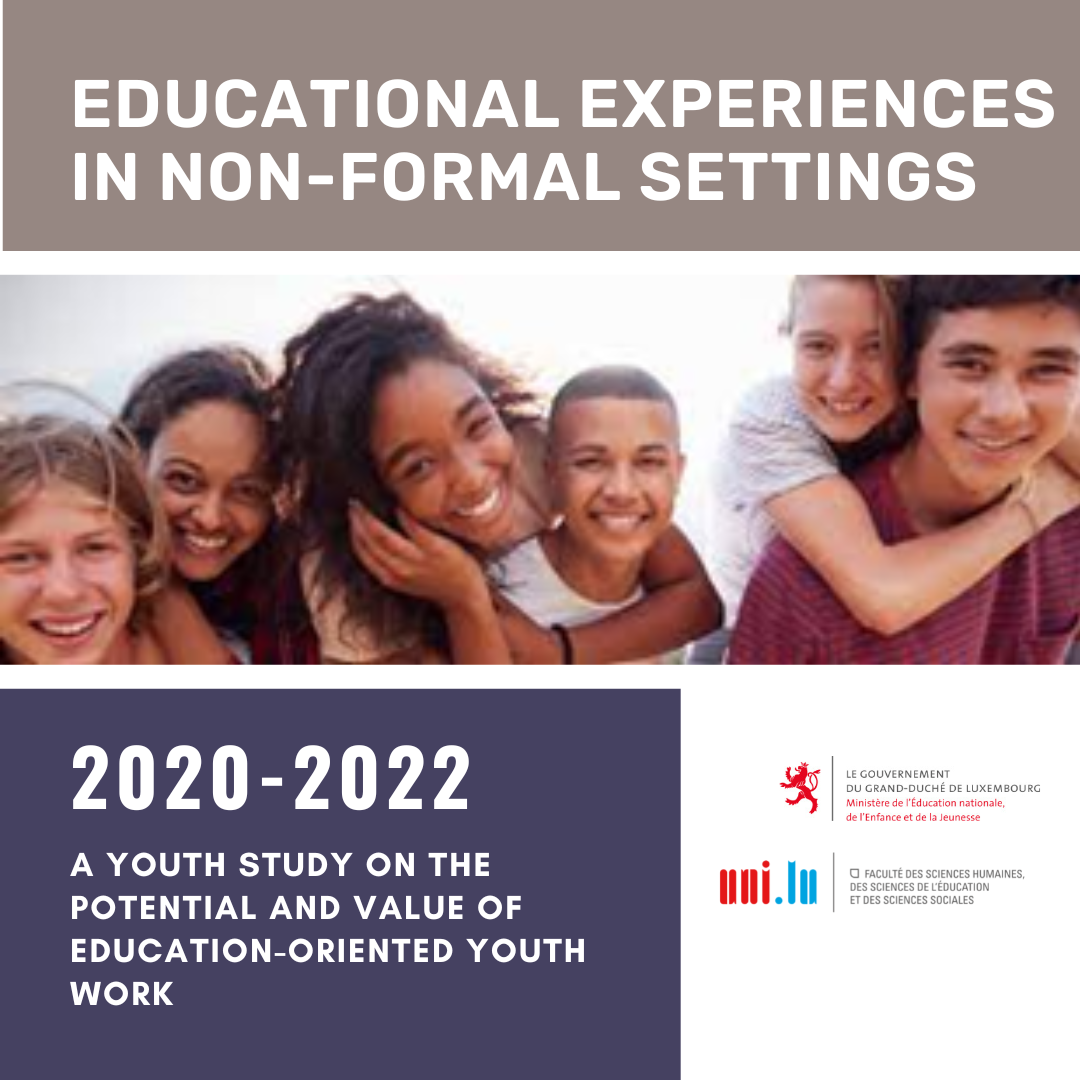
Jump to content
Study background: debates on education after „Pisa“
With the redefinition of the youth sector as an area of non-formal education, Luxembourg has followed an international trend. The origin of this development goes back to the crisis of the education system, which is also discussed in Luxembourg, as evidenced by international studies and research such as the Pisa study.
As one aspect of this debate, the importance of non-formal education approaches is highlighted. In the sense of holistic, local educational landscapes, the aim is to encourage the complementarity of educational opportunities in the future. This should lead to a better distribution of educational opportunities.
With the introduction of the national education framework in Luxembourg in 2017, the understanding of youth work as educational work has become further established. This development formally transfers the socio-educational approaches of social and situational learning, self-education, resource and integration work, etc., which are typical for youth work, into a more education-oriented logic. It remains important that education does not only mean the acquisition of knowledge, but is also connected with a variety of developmental tasks in the youth phase. Young people need protected and experimental spaces in order to find themselves and their role in society and to successfully master the transition to adulthood.
Exploring the educational experiences of young people
Given this background, the research project “educational experiences in non-formal settings – a youth study on the potential and value of education-oriented youth work” took a differential look at what education in youth work can be in specific terms and how young people learn for themselves and for life in the institutions of non-formal education.
In this sense, the aim of the study was to critically analyse and describe the subjective educational experiences that young people have in their participation in selected youth work settings using different methods of reconstructive social research. With reference to the theory of transformative education according to Koller (2018) and the basic principles of subject-oriented youth work according to Scherr (1997), it was empirically reconstructed what young people take out of their participation in youth work for themselves and their personal as well as social development, and to what extent lasting changes in young people’s ways of thinking, seeing and acting result from this.
The JuBi-Study: embedded in research on the quality of non-formal education
The mixed-methods study can be located in the field of socio-educational research. It was carried out over a total period of two years and was co-financed by the Ministry of National Education, Youth and Childhood (MENJE) in Luxembourg. The project started on 1 June 2020.
In addition to new insights into the potential and value of youth work from the perspective of the young people themselves, the study also shows approaches to action and conditions for successful non-formal education work. It thus provides a basis for information and discussion for politics, professional practice and science.


